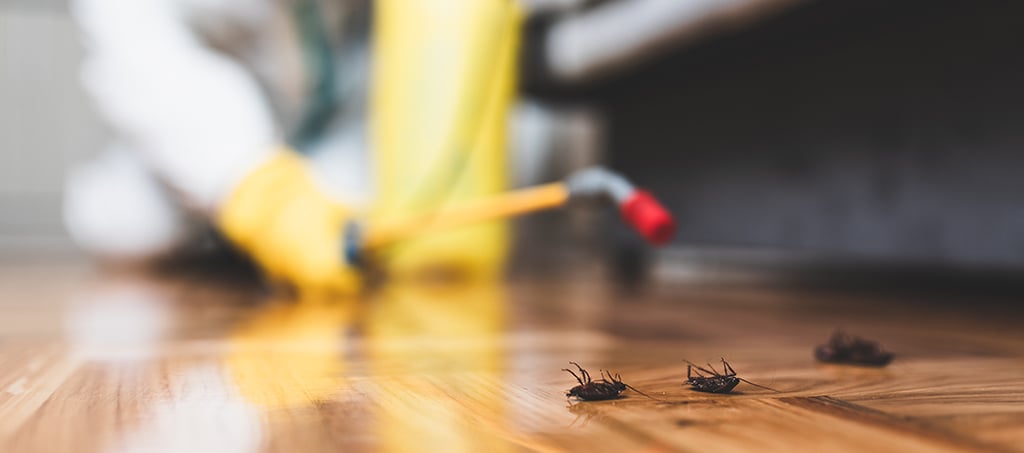BLOG
Subscribe to our newsletter
Who is responsible for pest control in a rental property?

Ants, roaches, spiders, bees, mice and rats are just a few of the common pest problems homes can suffer from. As a landlord, addressing these issues in your rental property comes with an extra layer that owner-occupiers don’t need to consider.
Who is responsible for pest control in a rental property? Is it the landlord or the tenant? It generally depends on the situation and what, if anything, has caused the issue.
Important! Don’t ignore a pest problem. Ignoring pests in your property can lead to additional property damage—think ruined wiring from vermin teeth, cladding damage and potential water ingress from burrows and tunnels. The sooner the pests are gone, the better off your property is.
If the pests were there before the start of the tenancy
Say your tenant moves into your rental property and after a few days reports a hive of bees in the backyard, or perhaps an ants’ nest in the kitchen. In instances such as these, where it is clear the pests were present before the tenant moved in, it is your responsibility as the landlord to address it.
If the issue is caused because you’ve failed to maintain the property (e.g. failing to fill gaps or repair damage that has allowed pests to establish a foothold in the property) then your tenants may issue you a notice to remedy.
If the pests have taken root after the start of the tenancy
This is where the line gets a little grey and responsibility can vary.
If the tenant has done something to cause the infestation, for example, failing to keep the property at a reasonable level of cleanliness, it is their responsibility to remedy it.
Again, if you’ve failed to properly maintain the property and that’s allowed pests to gain access, the responsibility will fall on you, potentially in the form of a notice to remedy.
In instances where neither party is a fault—for example, if cockroaches appear in the home due to earthworks on a neighbouring property—the responsibility is unclear. While most insect problems can be solved with a can of bug spray, which is usually within the means of a tenant, a persistent pest problem may require professional pest control. In these cases, the responsibility often falls to the landlord as they are required, under section 45 (1) (a) of the Residential Tenancies Act, to provide the premises in a reasonable state of cleanliness.
In some instances when no one is at fault, landlords and tenants choose to split the cost between them, but this is not a legal requirement.
Need to fumigate?
In situations where the property requires a professional exterminator, the responsibility of organising this generally falls to the landlord. As the landlord, it’s likely you’ll also have to cover the cost of fumigation—unless the issue was caused by the tenant, in which case, you can apply to the Tenancy Tribunal to make them pay for it.
5 tips to avoid pest issues in your rental
- Fumigate between tenancies.
- Check the property for signs of pests before your tenants move in.
- Arrange annual fumigation (paid by you). Prevention is cheaper than the cure. We recommend including annual fumigation in your tenancy agreement to ensure your tenants will permit access to the property to carry it out.
- Keep the property well maintained. Fill in and repair any gaps that may allow insects and vermin get in. Interestingly, the new Healthy Home Standards require landlords to correct any gaps or holes that cause significant draughts (and indirectly allow easy access to pests).
- Check for signs of pests during rental inspections. If you spot something early, you may save yourself further hassle (and cost) later.
- Ask your tenants to report any pest problems immediately.
In most cases, the responsibility of pest control falls to the landlord. And as a landlord, picking up the bill for it may be in your best interest if you have a good tenant that you want to keep around for the long term.


